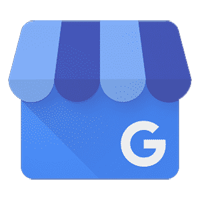August 2025
Save Your Reports in Feedback by Filter

Sometimes you need to see things in a different light to fully grasp what you're looking at. Understanding how your customers feel about working with your business is easy with LoyaltyLoop. One of the great features of the Promoter and Premier plans is the advanced reporting from the feature Feedback by Filter. Using Feedback by Filter you can isolate feedback in more detailed ways that help you understand your customers and business at a deeper level. This is accomplished by running reports that are filtered using the additional data you include with your survey launch file or integration.

Most businesses rely on their Google Business Profile to share information about your business with the world. From your address, phone number, products, and reviews, Google Business Profiles are one of the greatest creations by Google to help business reach customers...and it is 100% FREE. Sometimes with things that are free, it can be hard to get help and support. The good news is Google does provide support for businesses experiencing issues with their Profile. We compiled a list of Google Support pages to common issues you may experience.

The terms reviews and testimonials get thrown around a lot, often used interchangeably, which can definitely be confusing. But for businesses trying to build a strong online presence, understanding the distinction is key. Let's break down the difference and show you why both are crucial for your marketing strategy.